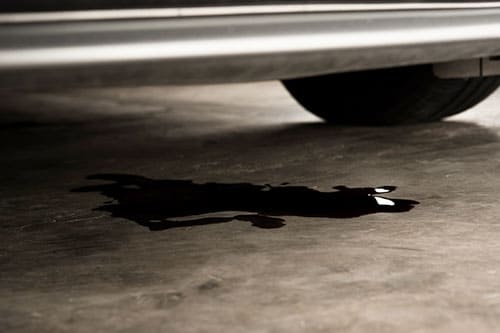Winterize Your Car: Preventing Coolant and Oil Leaks
Winter in Centerville, Ohio, isn’t just a herald of snow and ice; it’s a signal for car owners to be vigilant about their vehicles’ health. At C’s Autohaus, we pride ourselves on delivering exceptional service and understand the intricacies of vehicle maintenance as the cold creeps in. Let’s navigate through the common causes of coolant and oil leaks during this seasonal shift and arm you with the knowledge to prevent these common issues.
Coolant Leaks: The Winter Watch

- Expansion and Contraction of Engine Parts: The engine and its components expand when heated and contract when cooled. Repeated cycles of this can lead to wear and eventually cause leaks in areas like the head gasket or engine block.
- Material Fatigue: Hoses and reservoirs that have braved many seasons may give in to the stress caused by fluctuating temperatures, leading to cracks through which coolant can escape.
- Freezing and Thawing: If the coolant isn’t mixed with the proper antifreeze concentration, it could freeze, expand, and cause damage, leading to leaks when it thaws.
- Corrosion: Rust and corrosion can also take a toll on your cooling system, especially on the radiator and within the water pump, leading to coolant loss.
Oil Leaks: The Viscous Battle
Oil leaks can become a frequent winter woe due to:
- Gasket Deterioration: Gaskets are seals between various engine parts, and they can harden and shrink in cold temperatures, losing their effectiveness and allowing oil to seep out.
- Viscosity Changes: Oil thickens in the cold. When your engine initially starts up, the thick oil can strain the engine’s seals, leading to leaks.
- Seal Shrinkage and Expansion: Just like gaskets, seals around engine parts can also suffer from the cold, leading to temporary gaps and eventual leaks.
- Cracked Components: Engine parts made of plastic or other materials can crack in the cold, leading to oil leaks.
- Road Salt Corrosion: The salt used to de-ice roads can accelerate the corrosion of undercarriage components, including the oil pan and oil lines, causing leaks.
Preventive Measures for Peak Performance
Awareness is the first step in prevention. Here’s how we can help at C’s Autohaus:
- Seasonal Inspections: Bring your vehicle in for a pre-winter check. We’ll inspect all hoses, seals, and gaskets and look for any signs of corrosion.
- Proper Coolant Mix: We ensure your coolant has the correct antifreeze to water ratio to prevent freezing and maintain optimal engine temperatures.
- Winter-Grade Oil: Using oil with the right viscosity for colder temperatures can safeguard against leaks. We’ll make sure your vehicle has the proper oil for winter driving.
- Undercarriage Checks: We’ll examine the undercarriage for any signs of corrosion from road salt and advise on protective measures.
C’s Autohaus: Your Winter Vehicle Care Experts
Remember, regular maintenance is the key to a leak-free winter. As Ohio’s winter weather sets in, let us at C’s Autohaus ensure your vehicle, whether it’s a stylish Volkswagen or a sleek Audi sedan, is prepared to face the season head-on.
Visit us at 1690 Thomas Paine Pkwy, Centerville, OH 45459, or call us at 937-428-6040 to schedule your winter vehicle inspection. You can also find out more about our services and commitment to quality at csautohaus.com.
Stay ahead of the winter curve with C’s Autohaus, and drive confidently knowing your vehicle is in top condition, no matter the temperature outside.

